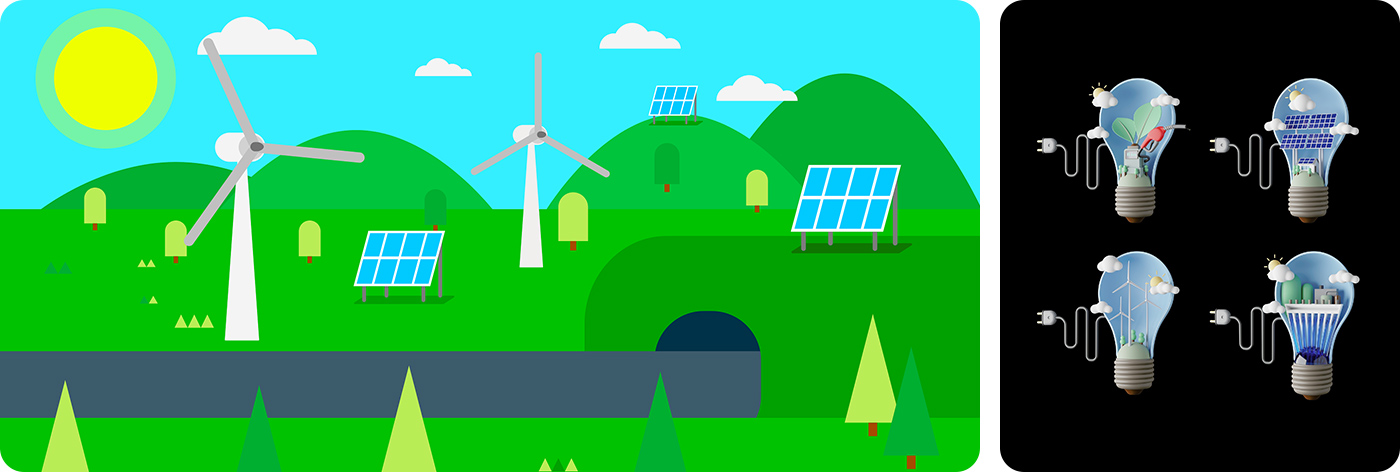Applications Cases
Renewable Energy

Solar panels, wind turbines, and hydroelectric systems are exposed to extreme environmental conditions during operation, so durability is vital. To maximize the structural performance of wind turbine blades and solar panels, lightweight and high-strength materials are necessary. Using instrumented indentation testing during the production process ensures real-time quality control of parts and helps quickly detect non-compliant materials.
Wind turbine blades are subject to very high stresses, and analyzing the tensile properties and residual stresses of composite and metal materials used in blades ensures optimal quality during production and operation.
Instrumented indentation testing can help evaluate the mechanical properties of metals and composites used in the back panels and frames of solar panels, identifying minor defects and material property changes to develop reliable materials and equipment.

 Directions
Directions


